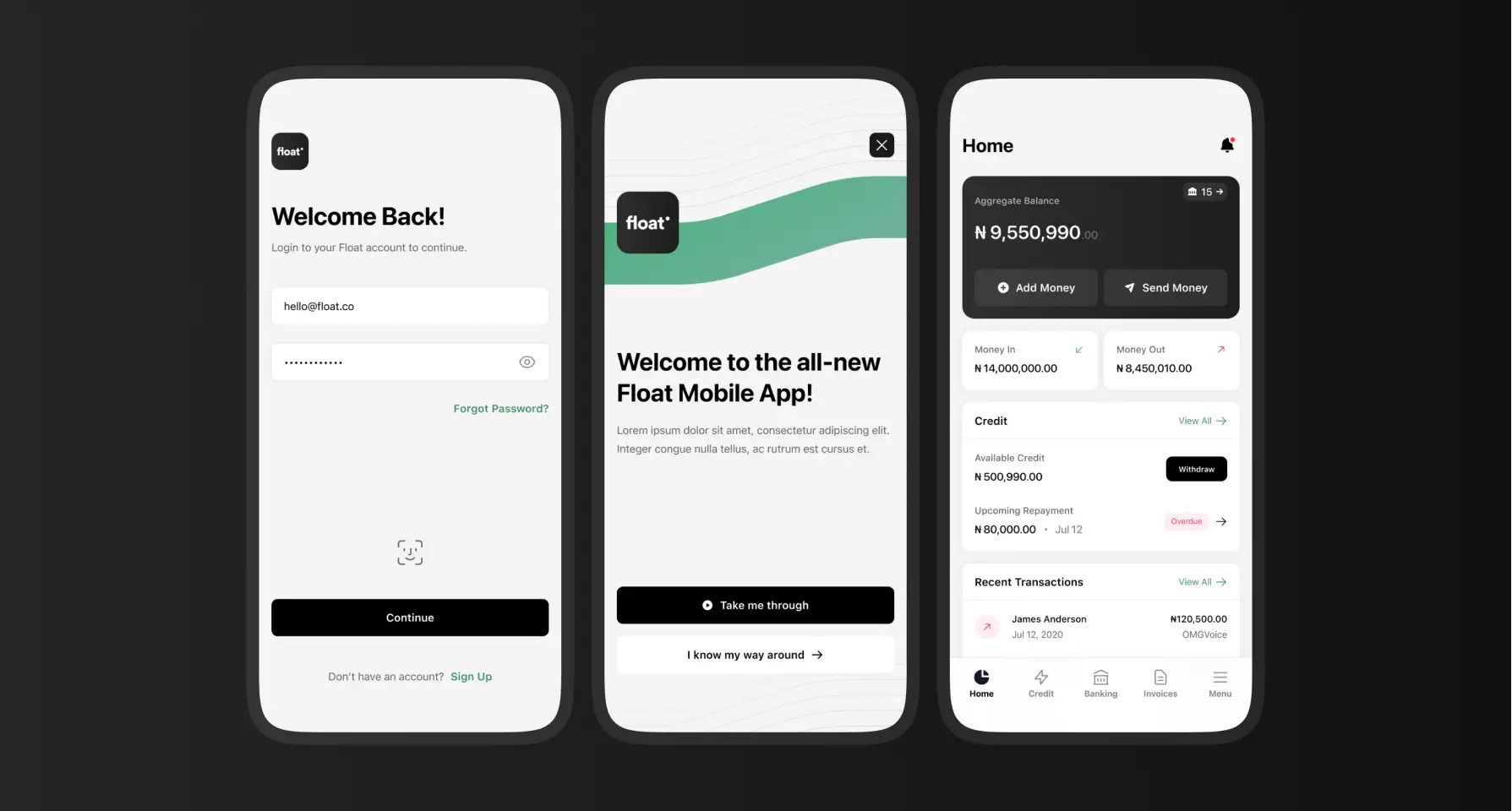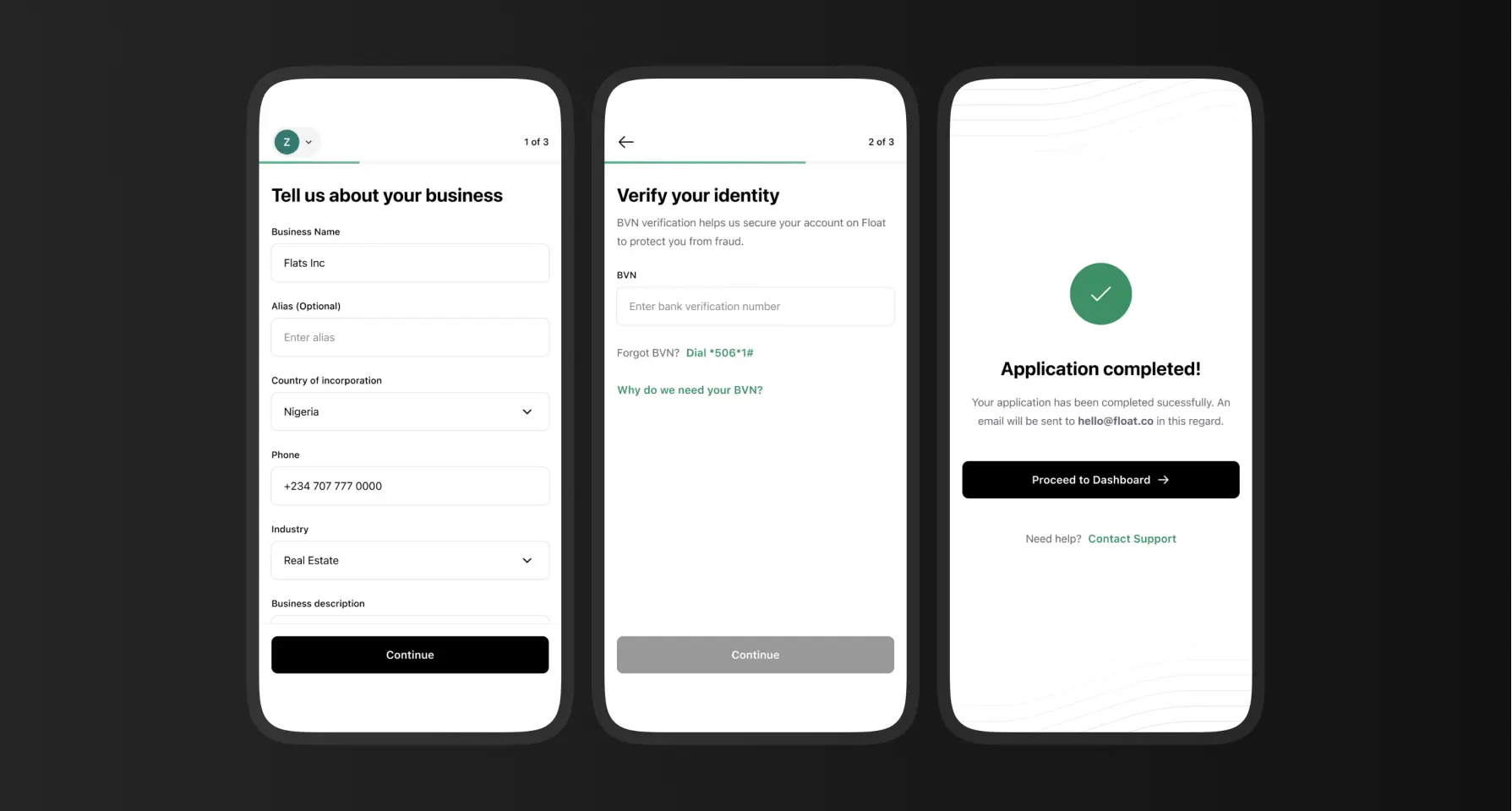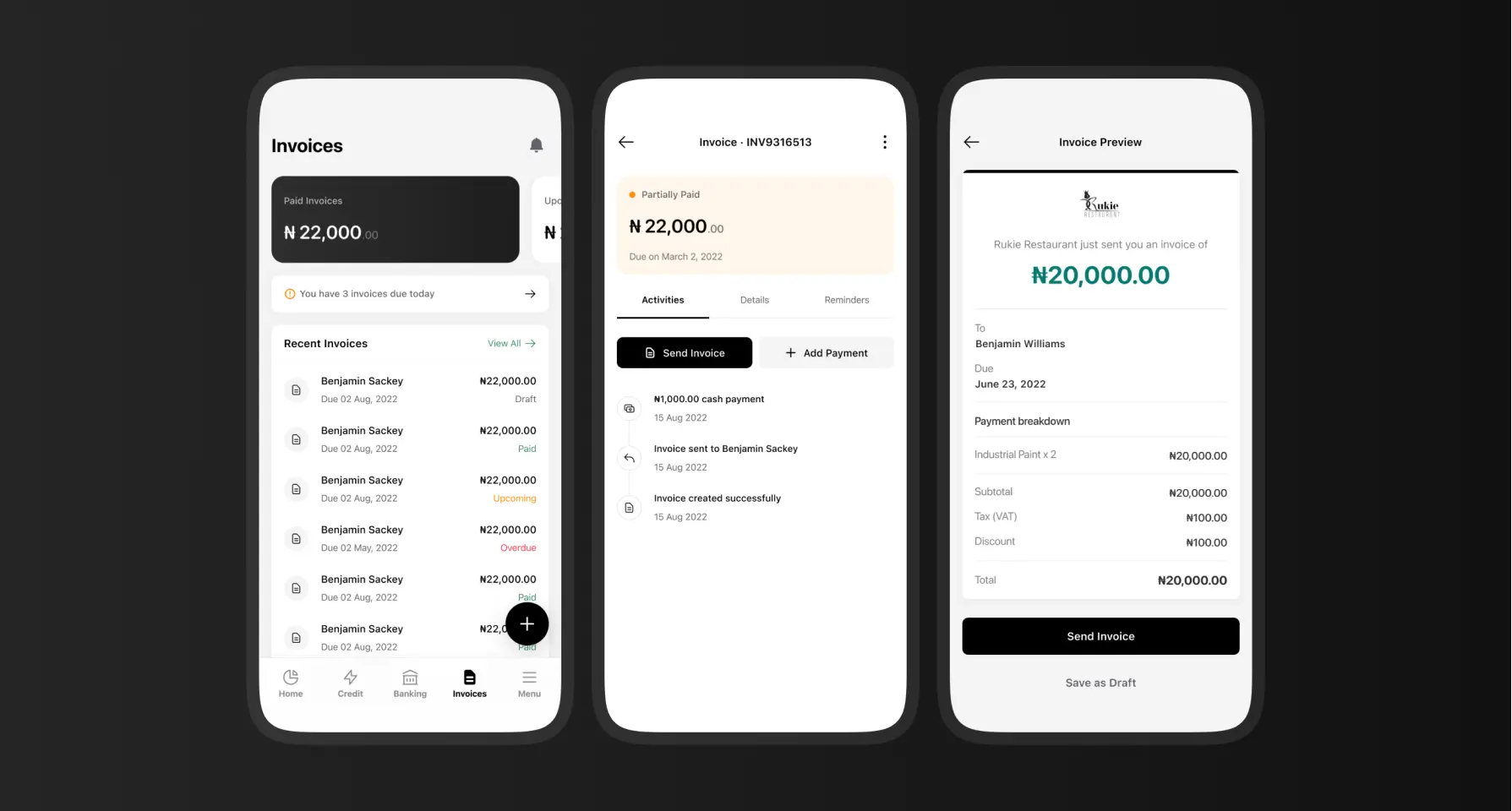
Float — A credit-based finance management tool for fast-growing businesses.

Float helps businesses manage their cash flow, payments, invoices, etc. One of Float's unique features is its credit offering — allowing businesses access credit, enabling them to cover various operational costs, payroll requirements, and other essential business expenses.
Alongside its powerful features, Float implements a robust system for local and cross-border payments. The payment gateways provided within the App are particularly helpful for businesses engaged in global trade or serving international customers.
My Role
In my role as the sole Product Designer on the Float project, I was tasked with creating an exceptional user experience for the finance management tool.
To accomplish this, I conducted thorough user research to understand the specific needs and challenges of individuals, small businesses, and corporations. This valuable insight guided me in making well-informed design decisions that effectively catered to the diverse market of Float's users.
Stakeholders
The Float project involves several key stakeholders, including project investors, business owners who are Float users, small and medium-scale enterprises, financial or payment institutions, and the App development team. Recognizing the significance of each stakeholder, their input and requirements were carefully considered during the design process of the Float App. The design decisions implemented aimed to address the needs and preferences of these crucial stakeholders, ensuring a well-rounded and effective product.
The Problem
The financial management of a business plays a crucial role in determining its success or failure. Medium and large-scale businesses, in particular, often face challenges when it comes to maintaining financial stability and meeting operational expenses. Moreover, the limited availability of credit options adds to their difficulties in covering essential business costs. Research has shown that approximately 45% of small businesses fail within their first year, largely due to insufficient capital or the absence of an effective payment system.
To tackle these obstacles effectively, there is a clear demand for credit-based finance management solutions that provide comprehensive management and payment capabilities. By addressing these challenges head-on, businesses can enhance their financial performance and improve their chances of long-term success.
How Float Helps Businesses
Float is a comprehensive finance management app that offers the following features to help businesses:
- Cash Flow Management: Monitor and manage credits, float score, and payment transactions with intuitive tools and analytics.
- Invoicing: Streamline the billing process by sending scheduled invoices and reminders to ensure prompt payments.
- Credit Provision: Small and medium businesses can access credit options by undergoing a secure verification process in the app.
- Payments: Make payments to local and foreign bank accounts using multiple channels such as bank wire and swift transfer.
Information Architecture
During my work on the Float project, my primary focus was on crafting a delightful and intuitive user experience. I dedicated attention to designing an information architecture that enables users to navigate and explore the platform's features and functionalities with ease.

Wireframes
One of the crucial parts of the design process is coming up with a skeletal view of how the product should look based on research & findings. So, I created wireframes to conceptualize the overall user experience of the platform.

Design System
To ensure a consistent and cohesive visual and user experience, I developed a comprehensive design system for the Float app. This design system encompasses various elements, including colors and brand themes, logo, typography, and components. By establishing guidelines for these design elements, the Float app maintains a unified and recognizable aesthetic throughout its interface.
Design Direction
The design direction I created for the Float app has been instrumental in bringing the vision to life. With maximum attention to detail and close collaboration with developers, the High Fidelity designs have successfully translated into a sleek product.

The Onboarding Process
The Float app's onboarding process prioritizes user satisfaction and engagement. Recognizing the critical impact of initial screens, I crafted an onboarding experience that is both user-friendly and efficient. The focus was to simplify the sign-up and registration steps while providing clear instructions to guide users.

KYC
The KYC (Know Your Customer) process encompasses vital steps such as business verification, credit application, guarantor's form, and direct debit mandate. By completing the KYC, businesses gain access to the full range of Float's capabilities, enabling them to access credit and harness the app's features to their advantage.

Float Credit
Float's credit feature sets it apart by offering business owners flexible repayment options, easy monitoring of credit balance, and convenient fund withdrawals for various business needs. Timely repayment improves the Float score, enhancing creditworthiness and unlocking future benefits.

Cross-Border & Local Payments
Float simplifies cross-border payments, allowing businesses to transact globally via international wire transfers and swift transfers. Additionally, local transfers provide convenient transfers to local bank accounts — streamlining transactions across multiple accounts.

Invoicing
The invoicing feature on the Float App simplifies billing for business owners. Businesses can create detailed invoices with payment terms and send them directly to recipients. The app also includes automatic reminders for unpaid invoices, ensuring timely payments and an efficient invoicing system.

Conclusion
As the product designer on the Float project, I've had a rewarding experience shaping its success. The Float app now offers business owners and users an intuitive platform for accessing credit, making borderless payments, managing transactions, and handling invoices.
Overall, the Float project has been a resounding success, and I am grateful for the opportunity to contribute to its development and overall user experience.
Many thanks!!!

